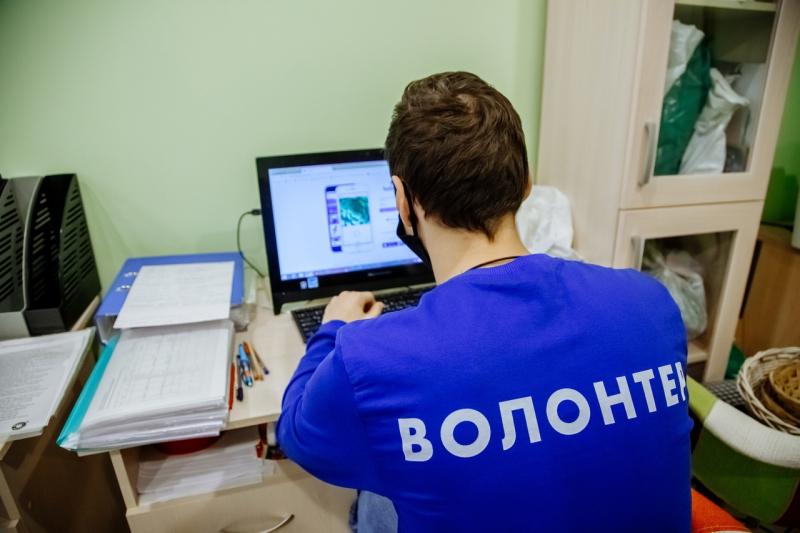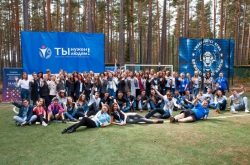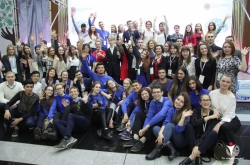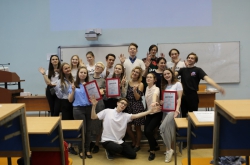The course was held in pilot format; its first participants were 15 teachers from schools of the Petrogradsky and Moskovsky districts. There are plans to make the course a regular event and scale it up, with the next one being launched in the spring semester.
Main purpose
Over the course of three months, representatives of the Student Initiatives Support Department and ITMO's Volunteer Center shared their experience and practices with representatives of schools. The course included not only a step-by-step guide to organizing volunteer teams, but also useful collaborations with non-profit organizations and partners – as well as an explanation of the legal specifics of documentation in the field of volunteer activities at educational establishments.
The course’s main purpose is to set up a shared volunteering system at educational establishments.
“Volunteering is among the key fields of focus of our department and the university in general. We thought it would be great if applicants who joined us would already have a set of basic skills and competencies,” comments Andrey Zlenko, head of the Student Initiatives Support Department. “This is a great format for the upbringing of the young, which also helps to develop soft skills like teamwork. What’s more, it all has to do with forming conscious values and respect towards others and the world.”
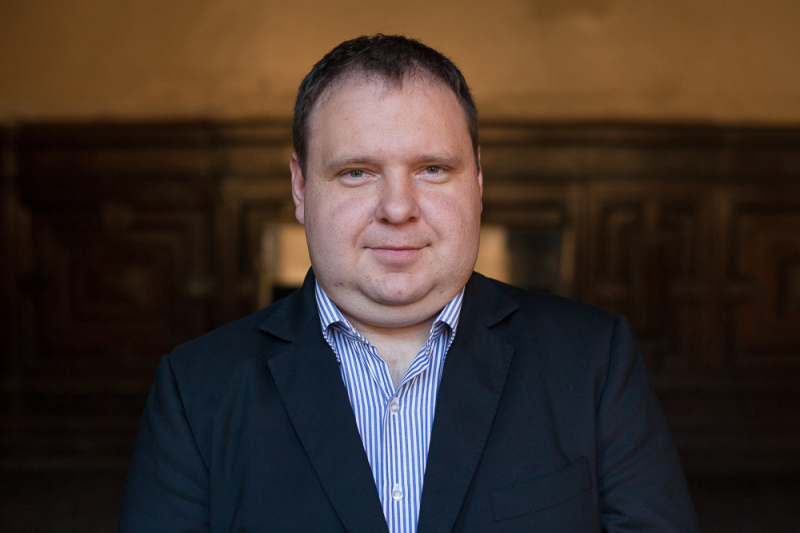
He also adds that it has been several years already that the university has conducted the People Need You! volunteering initiative for school students. However, it had not previously involved their teachers.
“Now, we aim to mend this situation and form a group of helpers from among teachers who will work with students directly at schools and involve children in volunteering activities, same as we do it at the university,” adds Andrey Zlenko.
Course content
The program was developed by members of the Student Initiatives Support Department with the use of methodological materials provided by their key partners: the Nevsky Angel society, the Kind City St. Petersburg foundation and the Association of Volunteer Centers.
As participating teachers had different levels of knowledge, it was essential for the course to cover both basic fundamental knowledge on what volunteering is and its development in Russia and the more advanced subjects like filing grant applications and account-keeping. Much attention was also given to the issues of team management, social design, as well as motivation and target setting methodology, with regard to the specifics of working with younger people. For example, Maria Saushkina, head of the volunteer center for the 2018 FIFA World Cup, spoke about motivating school students.
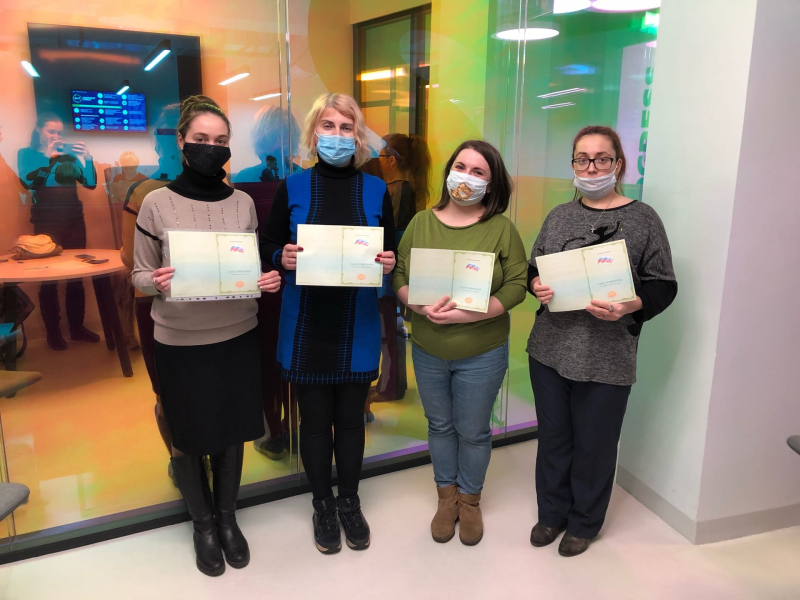
An entire module was dedicated to the practice of using digital tools — according to the organizers, they have never been as popular as today.
“We spent significant time on the specifics of working online. Today, the issues of involving children who’re studying in an online format, getting them interested in volunteering, is most relevant. We focused several sessions on specific tools and mechanics, for example got the participants acquainted with the Menti platform,” says Alena Tarasova, head of ITMO’s Volunteer Center.
Another important aspect was working with the Dobro.ru portal. Not only does it help search for volunteering opportunities and follow relevant events, it also tracks school students’ activities, giving them additional points when applying for university programs. According to the organizers, this factor plays the key role in persuading headmasters to support volunteering at schools.
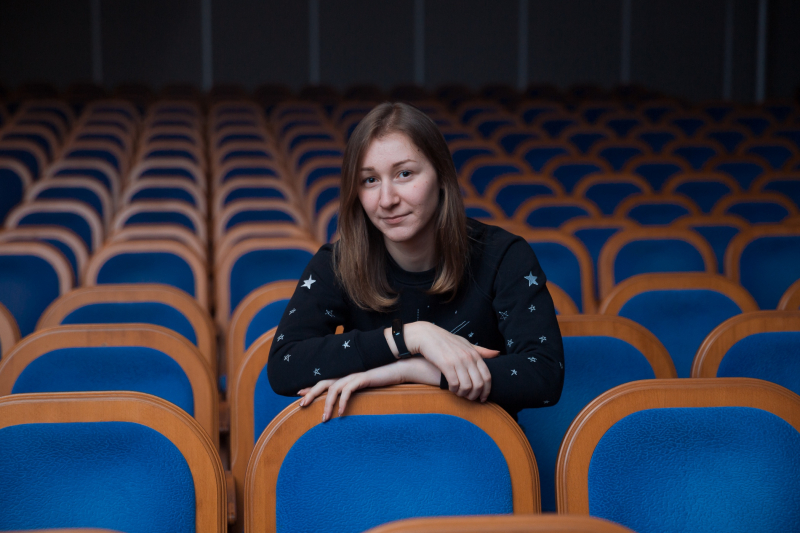
School students also got their share of attention: they had the chance to participate in a three-day intensive course that included an awareness quiz on the Kahoot! platform, which educated them on the famous people involved in charity and various volunteering organizations and projects that they partake in. The children were also offered to come up with projects that they would’ve liked to implement jointly with their teachers.
“The results were more than positive. Some of the participants are now seriously pursuing the goal of bringing together a volunteering team; they’ve developed the idea at the course and are now getting it approved at the school level. Some identified the activities that they want to participate in with their class. We have a team that has already contacted the Hermitage: they will involve school students in cultural volunteering. Simply put, we now have an interesting community,” concludes Alena Tarasova.
ITMO.NEWS contacted the teachers who attended the course and asked them about their experiences
Elena Dorofeeva
School № 643
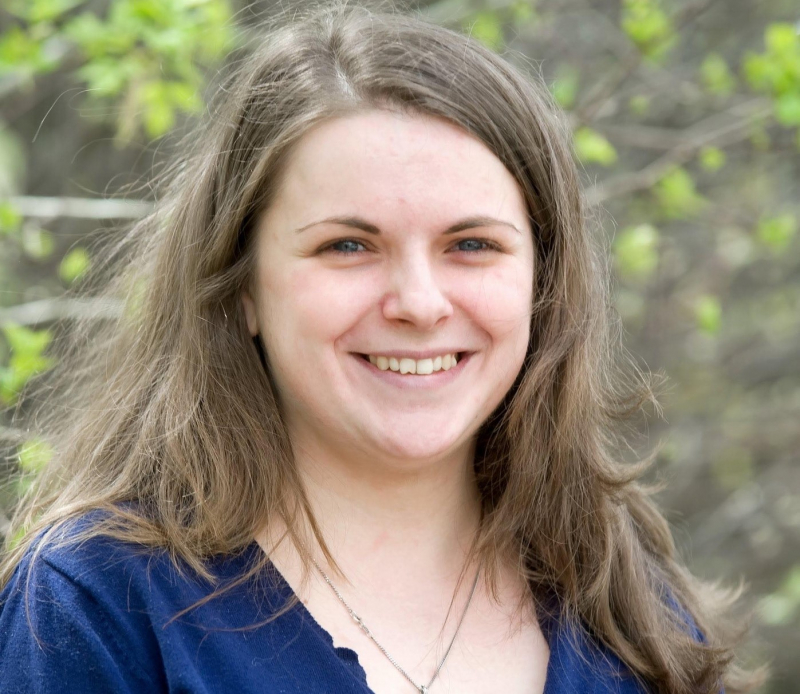
I learned about the project by accident when I saw a repost on social media and barely applied in time.
I see that volunteering is something that’s being rapidly developed, which is why I got interested in it. To my mind, any activity is important, but especially that which has to do with goodness and good deeds. This is something modern school students lack direly.
Before the course, I had no experience of participating in volunteering events, and now I have my own student team, and together, we’ll be doing good for others. We decided to focus on doing something for the animals: it seems that this suits children the most.
At the course, I learned about the stages of organizing a volunteer team, the associated documentation and basics that will help me do good.
Yulia Sergeeva
Gymnasium № 642 “Earth and Universe”
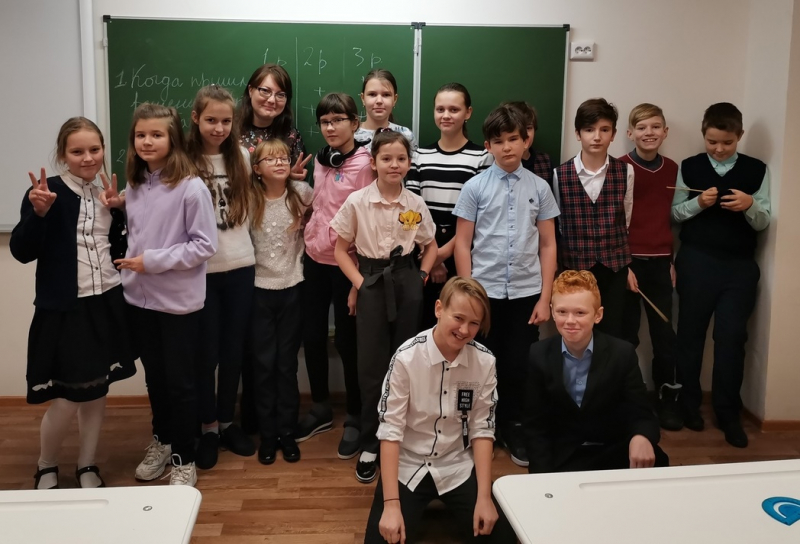
I decided to participate in the People Need You! course as soon as I saw its announcement on VK. I wanted to adopt their experience and learn to organize volunteering with students. What’s more, I somewhat knew Andrey Zlenko, which made me even more interested. Getting a certificate was also a plus. As I already had an experience of being a team head, and I plan to organize activities at our gymnasium, it gives more opportunities for development in this field.
I’ve been into volunteering since 2013, and I took part in organizing a great many events. And in 2015-2017, I was a head of a student volunteer team in a different city.
The topic of volunteering has become really relevant, and is actively supported by the state; new and new types of volunteering activities emerge. This year, we have the #WeAreTogether initiative, which I actively participate in, which has volunteers deliver food and medical supplies to the elderly. I really want to involve my students in it, as well.
On the whole, the course is great. There was a lot of additional methodological material, and I also liked the diversity of topics. The lecturers are very interesting; I especially liked the lecture on social design: the topic is really interesting and meaningful. The material brought by the lecturers was easy to comprehend, and I couldn’t wait for new meetups and study sessions.
I also want to thank the organizers for motivating us. I plan to use the experience and knowledge I got when I’ll focus on bringing together my team.
Irina Varina
Academic gymnasium №56
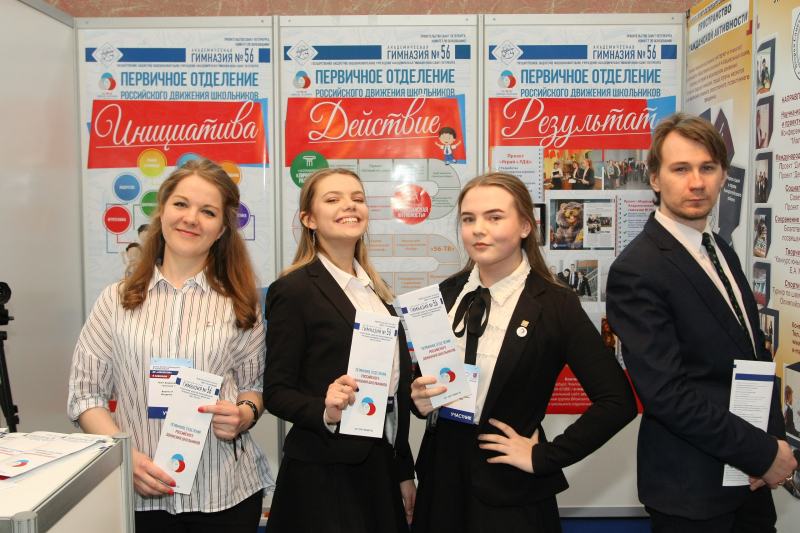
Our gymnasium had no volunteer center for a long time, but with the emergence of the countrywide school student volunteer movement, we decided to develop this field. We learned that this initiative is popular, and there are many contests, a lot of attention given to it. I believe that this is an important topic, as volunteering develops positive qualities in children: the desire to be useful, do good, feel happy about good deeds. It teaches them to be sincere, develops communication skills, helps with self-fulfillment.
Before this course, I only had experience of participating in volunteer events. In my school and university years, I participated in the organization of festivals, organized some events on my own, and worked as a journalist. But I didn’t have information on the methods for teaching volunteering activities, so I was very interested in learning what a curator of a volunteer team is to do, and the ways of organizing volunteering at one’s school. The course gave me advanced knowledge in this field. I acquired many practical tools and learned about various approaches to organizing volunteering activities. It was meeting Maria Saushkina that I remembered the most — I knew her already, and now I got her recommendations, advice and inspiration first-hand.
When I came to the first meetup and spoke to the organizers, it became clear that they are people of action. They don’t just know the topic well, but they are also really responsive people, which won me over.
I would’ve given myself a C+ for my progress, as I am yet to develop active volunteering activities at my school. To some extent, this also has to do with the ban on student meetings and communication between classes, and all supplementary education taking place online. But I came up with a model of a team and its operation, and I now have the associated skills and knowledge that I can use as a basis for my future work. I also got to know the children who are ready to participate in projects when the opportunity comes.
I really liked the course. It was short and inspirational, and I felt motivated after every meetup. Not every course gives you such a feeling. I think I’ll stay in touch with both my colleagues who also attended it and its organizers whom I can ask for help and advice.
